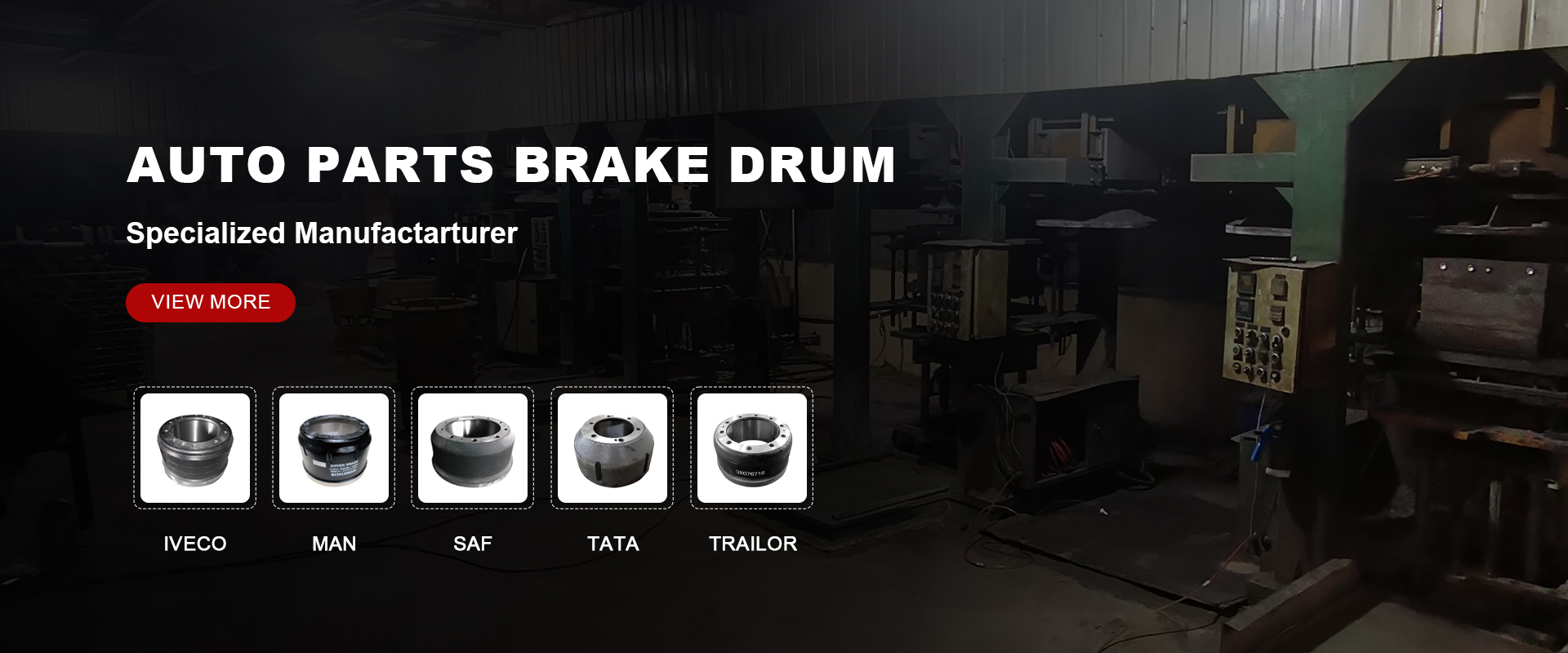Dec . 22, 2024 00:20 Back to list
should brake drums get hot
Should Brake Drums Get Hot?
Brake drums are a crucial component of many vehicles’ brake systems, particularly in older models and heavy-duty applications like trucks and buses. As with any mechanical system, heat management is critical for performance and safety. This article will explore why brake drums can get hot during operation, the implications of this heat, and what vehicle owners and operators should know to ensure safety and efficiency.
The Role of Brake Drums
Brake drums work in conjunction with brake shoes to create friction, which slows down or stops a vehicle. When the driver presses the brake pedal, the brake shoes expand and press against the inner surface of the brake drum. The static friction created by this contact converts kinetic energy into thermal energy, which is why brake drums inevitably heat up during use.
Why Do Brake Drums Get Hot?
There are several reasons why brake drums heat up during operation
1. Friction The primary reason for heat generation in brake drums is friction. The energy conversion process is expected and is part of the braking system's design. Efficient braking relies on this friction, but excessive heat can become a problem.
2. Heavy Braking Frequent or heavy braking, such as in stop-and-go traffic or while descending steep hills, generates more heat than normal. The more frequently brakes are applied, the more heat accumulates within the brake drums.
3. Insufficient Cooling Brake drums are typically designed for efficient heat dissipation. However, in circumstances where airflow around the drums is restricted (e.g., heavy loads or poorly ventilated environments), the drums may not cool adequately, leading to excessive heat buildup.
4. Brake Material The materials used in brake pads and drums influence heat generation and dissipation. Some materials generate more heat due to higher friction coefficients, while others may be designed to handle heat better.
5. Poor Maintenance Worn brake components, such as drums or shoes, can lead to inefficient braking and excessive heat generation. Additionally, low-quality brake fluid can boil under high temperatures, reducing braking efficiency.
should brake drums get hot

Implications of Overheated Brake Drums
While some heat is normal, excessively hot brake drums can lead to various issues
- Brake Fade As brake drums heat up, they can experience a reduction in braking power—a phenomenon known as brake fade. This occurs when the temperature surpasses the optimal operating range, causing the brake material to become less effective.
- Damage to Components Prolonged exposure to high temperatures can warp brake drums, damage brake shoes, and even affect wheel bearings. Replacing these components is often more costly than regular maintenance.
- Safety Risks Overheated brakes can lead to accidents, as drivers may find their vehicles taking longer to stop or becoming unresponsive altogether.
Preventive Measures
To ensure brake drums operate within safe temperature limits, vehicle owners should consider the following preventive measures
- Regular Inspections Have a qualified technician inspect the entire brake system, including drums, shoes, and hydraulic components regularly.
- Monitor Driving Habits Awareness of driving behavior can help mitigate excessive heat generation. Avoiding heavy braking when possible and maintaining a safe distance from other vehicles is essential.
- Correct Brake Adjustment Ensure that the brake shoes are correctly adjusted to maintain optimal contact with the brake drum.
In conclusion, while it is normal for brake drums to generate heat during operation, excessive temperatures can lead to performance issues and safety hazards. By understanding the factors that contribute to overheating and implementing preventive measures, vehicle owners can ensure their braking systems remain effective and safe.
-
Explore Japan: Ultimate Travel Guide & Authentic Experiences
NewsAug.19,2025
-
Your Brake Drum Man: Premium & Reliable Brake Drums for Sale
NewsAug.18,2025
-
ROR Web Development: Build Fast, Scalable, Secure Apps
NewsAug.17,2025
-
Scania Brake Drums: OEM Quality for Optimal Safety & Durability
NewsAug.16,2025
-
R.V.I: Advanced Remote Visual Inspection for Precision
NewsAug.15,2025
-
Discover HYUNDA: Innovative Vehicles, Equipment & Solutions
NewsAug.14,2025
